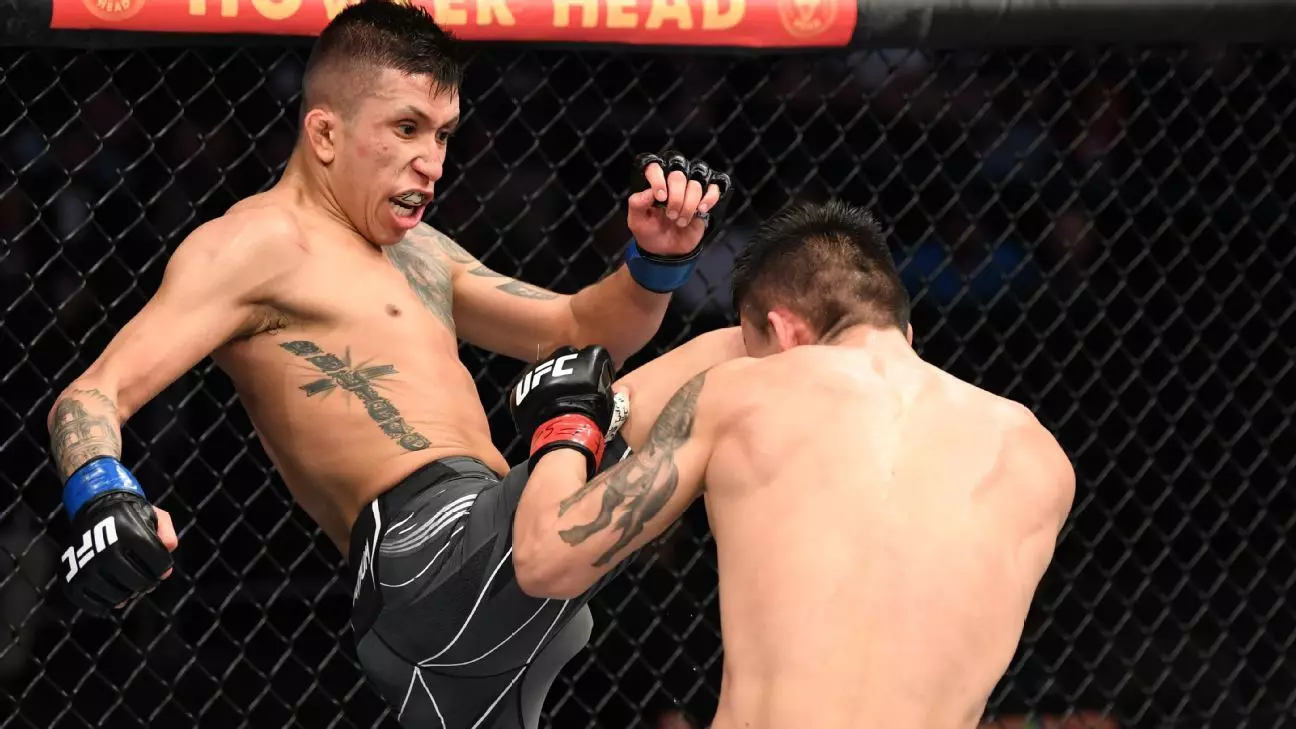Mixed Martial Arts (MMA) has garnered an enthusiastic following, yet recent events expose a murky underbelly that challenges the sport’s integrity. The case of MMA fighter Jeff Molina epitomizes this troubling trend, highlighting the alarming intersection of insider knowledge and sports betting. As betting has increasingly become intertwined with the sport, the risk of ethical violations has never been more apparent. This specific incident, involving a November 2022 bout between Darrick Minner and Shayilan Nuerdanbieke, draws significant concern regarding the impact of personal connections on fair competition.
Molina, then an active UFC fighter, had access to confidential information about a fellow competitor’s injury. His situation raises vital questions: How much transparency exists within the sport when insiders like Molina can manipulate circumstances for personal gain? The Nevada Athletic Commission (NAC) flagged the bets placed by Molina as suspicious, indicating that unusual wagering patterns had triggered an investigation. Such events disrupt the sanctity of the sport and call for stringent oversight to curb unethical behavior.
Fighting the System: The NAC’s Role in Maintenance
The NAC, acting as the regulatory body in Nevada, stepped in to investigate this complex scenario. Their findings depict a layer of corruption that fans and participants naively overlook. Molina was suspended for failing to disclose vital information, and while he accepted responsibility, the implications of his actions linger. When professional athletes exploit their positions for financial advantage, the foundation of trust necessary for sportsmanship is severely undermined.
NAC commissioner Jeff Mullen articulated his dismay at the incident, stating, “This is one case of betting with inside information on the injury.” Such sentiments reflect a broader concern about the regulatory systems in place. The organization must not only enforce penalties but also actively work to prevent these scenarios through transparency and rigorous checks. The inherent risks of insider betting could become a pervasive issue, leading to long-lasting damage to the credibility of MMA.
The Broader Implications: Impact on Fighters and Fans
The fallout from these controversies extends beyond just the immediate participants. For fans who revel in the unpredictability and raw competition of the sport, revelations like these instigate feelings of betrayal. Betting activities can skew perceptions of fairness and authenticity associated with MMA fights. A sport where loyalty and honor should prevail is tainted by greed and deception. Fighters who adhere to ethical standards may find themselves competing in an environment that is anything but level.
The ramifications are equally profound for fellow fighters. Minner, who also faced suspension for failing to disclose an injury, serves as another case study in the cumulative effects of unethical practices. The intense scrutiny now surrounding their careers could provide a chilling effect, forcing fighters to reassess their relationships and decisions in a sport driven fiercely by competition and personal success.
Furthermore, the entanglement of fighters with betting operations—such as Minner’s former coach James Krause, linked to offshore bookmaking—highlights a network that risks undermining the integrity of MMA. Such connections need immediate attention and disassociation, as they open doors for corruption that cannot be easily closed. The UFC’s decision to instruct fighters to distance themselves from such influences was a necessary step, but it raises the question: How can the sport genuinely innovate to ensure a corruption-free future?
A Call to Action: Regulating the Future of MMA
A robust response is imperative to address these critical issues. As the popularity of MMA continues to surge, so too does the necessity for comprehensive regulation. Enhancing oversight mechanisms is paramount—not only to punish wrongdoing but to foster an environment of accountability and respect for the sport. Athletic commissions must introduce more stringent regulations concerning athlete betting and financial disclosure in the context of insider knowledge.
In a climate where financial gain can easily taint results, the UFC, NAC, and other governing bodies must collaborate effectively. They must prioritize the sport’s integrity over profits and entertainment values. Harnessing technology for improved monitoring systems could act as a deterrent, ensuring that the actions of individuals like Molina stay within ethical boundaries.
The lesson learned from this incident isn’t solely in punitive measures but rather serves as a clarion call for an introspective examination of the culture within MMA. Only through collective actions can we restore faith in one of the most thrilling sports of our time and preserve its future for generations to come.


Leave a Reply